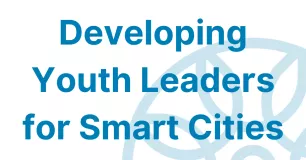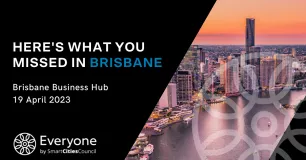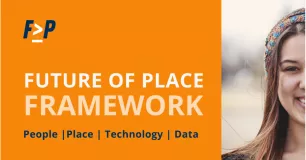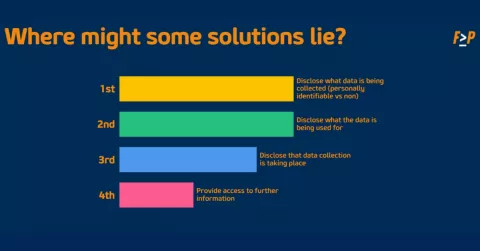
Could video be the richest source of data we have to help understand what's happening in the public realm? Perhaps, but what might be holding us back from using CCTV and other data sensors in our public places to make the best investment decisions to shape the best places?
In a recent exchange of respective views on the topic of digital transparency in the public realm (DTPR), we invited delegates to share their leading research and project testing, during a facilitated interactive activity responding to strategic questions.
The session looked at where we are at with data leadership in the public realm, from local councils and government implementation journeys to the solutions being designed and leveraged to enhance the level of digital transparency for all to deliver safety and inclusivity with the goal of delivering the best outcomes for people and place through technology and data innovation.
Our guests for the discovery session included:
-
Nicole Stephensen | Principal Consultant, Ground Up Consulting
-
Catherine Hill | Head of Smart City Incubator, City of Melbourne
-
Adam O'Connor | Executive Director, Reveal Smart Nations
-
Michael Healey | Smart Cities Program Manager, Christchurch City Council
-
Rohita Singh | Principal Strategy and Service Design, Telstra
-
Ian Hatton | Principal Smart City, Complete Urban
Two key themes emerged. Transparency is vital for ensuring that, not only is there community understanding and backing of projects, but that the correct, fit-for-purpose solutions can be designed and implemented to deliver useful data sustainably.
It is important to note that this is in the context of public realm data being invaluable to helping shape better places for people, as indicated in our rapid audience surveys (see below).
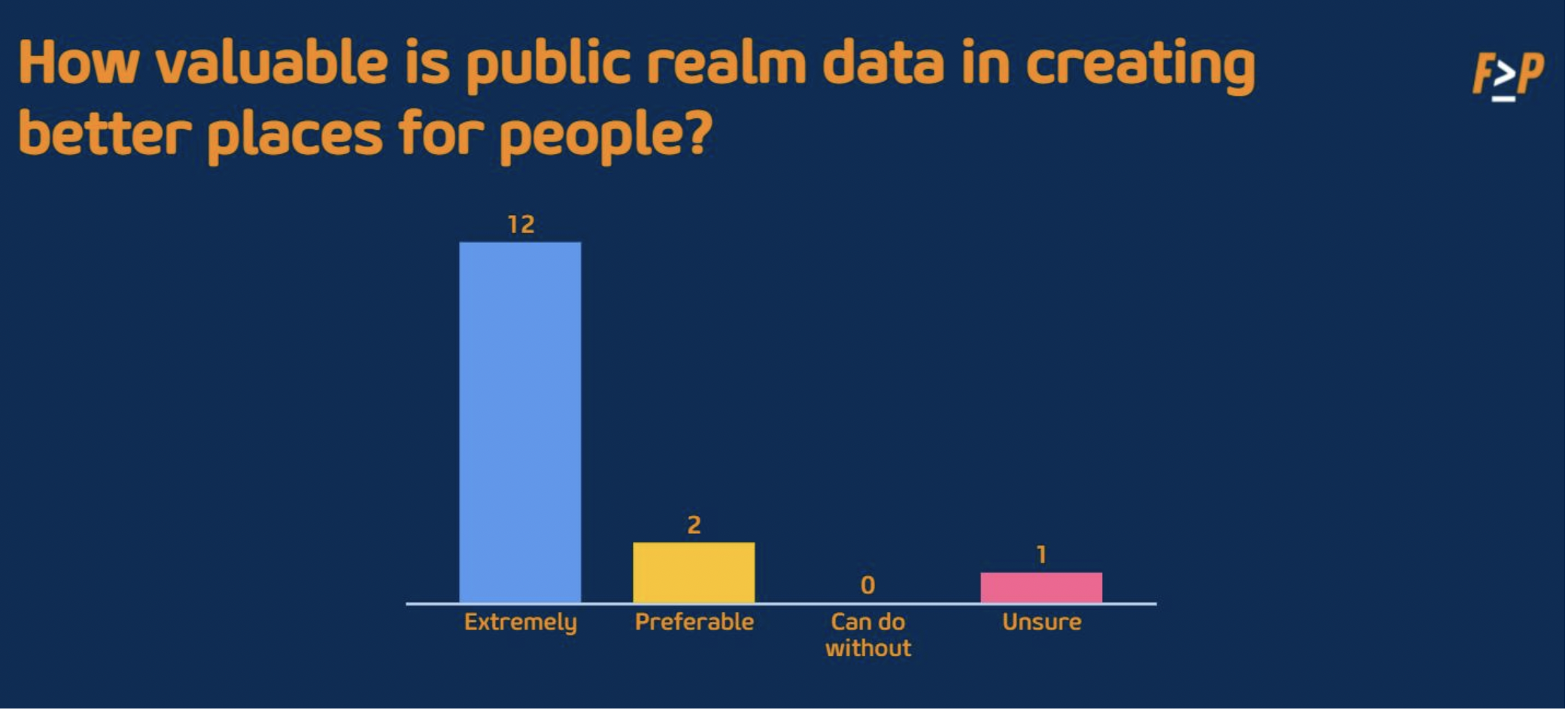
And the final point to make, from what can be gleaned from the survey question in the header image of this article, is that our use of public realm data and disclosing that more often could be a critical enabler in overcoming some of the challenges we have been discussing around DTPR.
From our perspective
For close to two years we’ve been exploring the idea of digital transparency in the public realm. As a Future of Place Task Force we have looked at a range of projects such as the Google Sidewalk Labs Project in Toronto, which was one of the first to raise the idea of digital transparency in the public realm. Through the project, an open source toolkit was established, allowing stakeholders to enhance the level of transparency in the technology that they deploy and the data that they gather. Of course, as an issue of public data, the project has been polarizing, with many views contributing to the maturity and evolution of the conversation – certainly the ones we have been having.
As more cities prioritise transparency when it comes to the deployment of data-gathering technologies to make better decisions, so the learning continues.
What our guests shared
Ian Hatton | Principal Smart City, Complete Urban
“Be very clear and transparent up front and act ethically to build trust, and then communicate clearly to communities the value and the benefits of using the information.”
Adam O’Connor | Executive Director, Reveal Smart Nations
“Data governance, process and privacy are critical to ensuring that the systems are actually used and the right decision can be made from the implementations. To ensure the accuracy of data, it is important that deployed technology is fit for purpose and that data systems and methodology are well understood.”
Michael Healey | Smart Cities Program Manager, Christchurch City Council
“It’s important that we have data-driven conversations with our communities to ensure there is trust in data. It was important for us that we were educating the public on the methodology used, the safety of data, and that we share the positive community outcomes that come from using technology like pedestrian cameras or cycle counters, what are we doing with the data, what are the benefits have been for residents, businesses and the broader community.
Nicole Stephensen | Principal Consultant, Ground Up Consulting
“Privacy done well is not actually just about compliance with the law, it's also about having a culture of privacy and furthering a culture of privacy that that extends to the privacy interests of the community that we serve.”
Catherine Hill | Head of Smart City Incubator, City of Melbourne
“To build trust and transparency really requires communication about what is being sensed and what data is being collected which are two different things.”
Rohita Singh | Principal Strategy and Service Design, Telstra
“Beyond privacy lies security and what happens with collected data. How is it secured? From the Telstra perspective, the first steps are to look at data sovereignty, privacy and AI ethics.”
